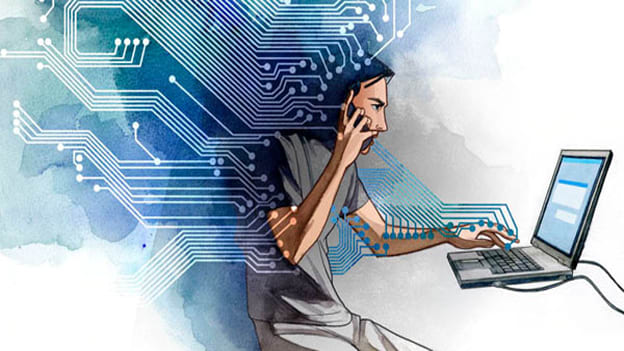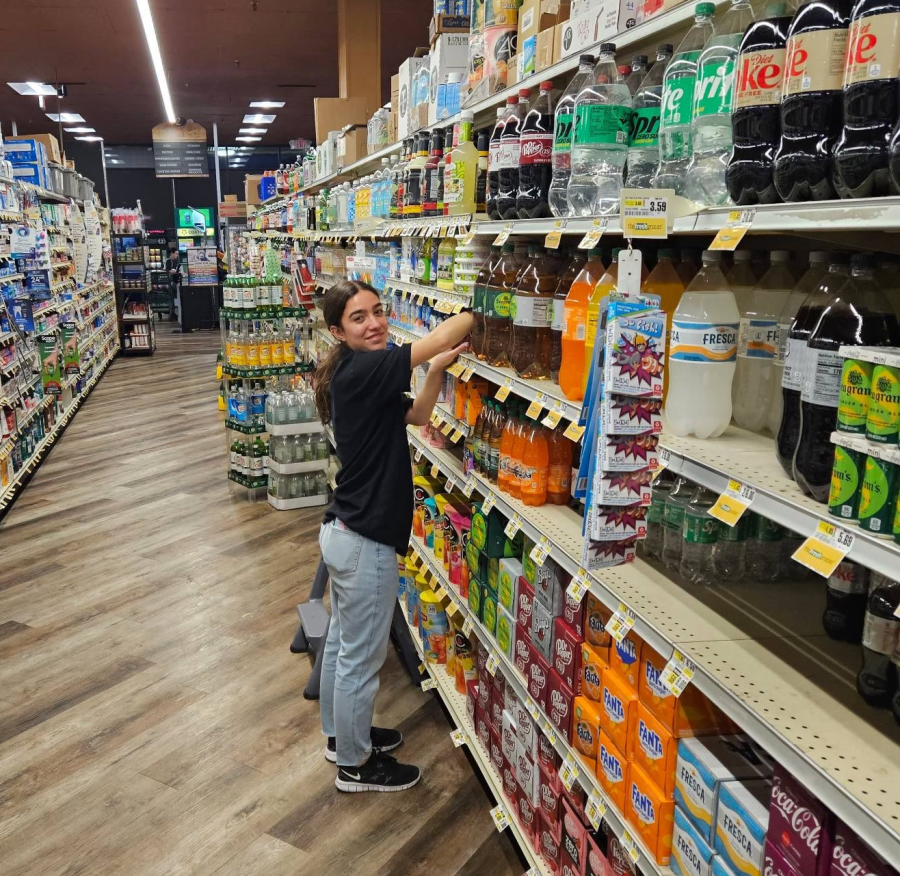Throughout recent history technology has been used for greatness and to cause controversy. Ranging from developing a cure to cancer, to leaking sensitive and confidential Pentagon documents. This has raised the question, how much do humans depend on technology?
Survey results
In an anonymous survey of 115 people, 51.3% said humans were either too dependent or way too dependent on technology, while an additional 23.5% were indifferent, and the rest, 25.3% believe we aren’t dependent enough. The survey consisted of 41.7% males, 41.7% females, and 16.5% preferred not to say. This is an interesting finding, as AI gets more intelligent and continues to take over more jobs, people still believe we need to be more dependent on technology in our lives. So when will the line be crossed?
WALL-E
In the same survey, they were asked if we would ever live in a society like the one from WALL-E. 10.4% said we will soon, 57.4% believe it will happen eventually, and 32.1% believe it won’t happen. WALL-E is a movie about the advancement of civilization and what would happen if technology took the jobs of all humans. It shows a universe where people have destroyed and abandoned Earth. Those people now live in a ship in space, they are morbidly obese, and cannot function without the constant assistance of robots and technology.
Public opinion
In an interview with Aidan Brown, a 19 year-old farmhand, claimed; “I believe technology has helped people in many ways. It has made my life easier as it isn’t as much physical labor as it was when my father was younger. But at the same time people become too enveloped in it. It has devoured their values and lose their sense of touch with reality. Social media is great for connecting with people, but they should make more of an effort to meet each other in person. There is no reason to spend as much time as people do online. They should go out and do more with their friends and family, that is what is truly important.”
Apocalypse
Additionally, they were asked if technology would be the downfall of mankind. 44.4% said It will be eventually, 28.7% weren’t sure, and 27% didn’t believe it would be. This result is shocking compared to the expected results, which were projected to be a lot lower. This is an important question to cover because it shows how paranoid humans are about technology. However, this raises a couple questions; is this something we should be afraid of, and is technology going too far?
To start, they were asked if they were scared of the prospect of A.I. becoming smarter than humans. 33.9% stated they were either scared or terrified of it. 18.3% said they were indifferent about it, and 47.9% were not scared at all. This is an interesting find because more people are scared of A.I. being the downfall of mankind, but not A.I. becoming smarter than us. A.I. would need to be smarter than us to be the downfall of us, so why aren’t people more scared of A.I. becoming more intelligent? This may be due to the belief that A.I. wouldn’t need to be more intelligent than us, rather it would only have to realize that humans are too dependent on itself and can try and sabotage humans.
Public opinion
In a different interview, Krystal Shinsky, was asked if humans were too dependent on technology. She responded; “I definitely don’t think we are because like, there are still a lot of problems we need to solve in the world. Things like world hunger, and war are all still a thing and we should focus on getting rid of it.” Shinsky was then asked if she though technology would solve those issues, she claimed; “I think it would because people don’t realize we can like, grow food and meat with technology so we aren’t harming the planet. Also if we just made better things with technology we wouldn’t have to fight over anything.”[sic]
Restrictions
They were also asked if society would benefit if there were restrictions on the use of technology, 45.3% believe we would benefit from adding restrictions. 27% of people were indifferent, and 27.8% believed we wouldn’t benefit. But what restrictions would be placed? There are many types of restrictions we could add, such as the banning of social media, limiting time allowed on those apps, and more. Time restrictions on social media could be seen as going too far. A lot of Countries with brutal regimes, such as China, have this. But it could also be seen as beneficial, as people are more focused on working and not themselves.
Social situations
The surveyors were also asked if people are more awkward in social situations. The results are; 40.8% believe we are, 28.7% are indifferent, and 13.9% believe we aren’t. This could be seen as technology expanding our reaches and social skills because of the interactions we have online. However, real life could be a lot different, as some people are constantly online instead of interacting with humans.













